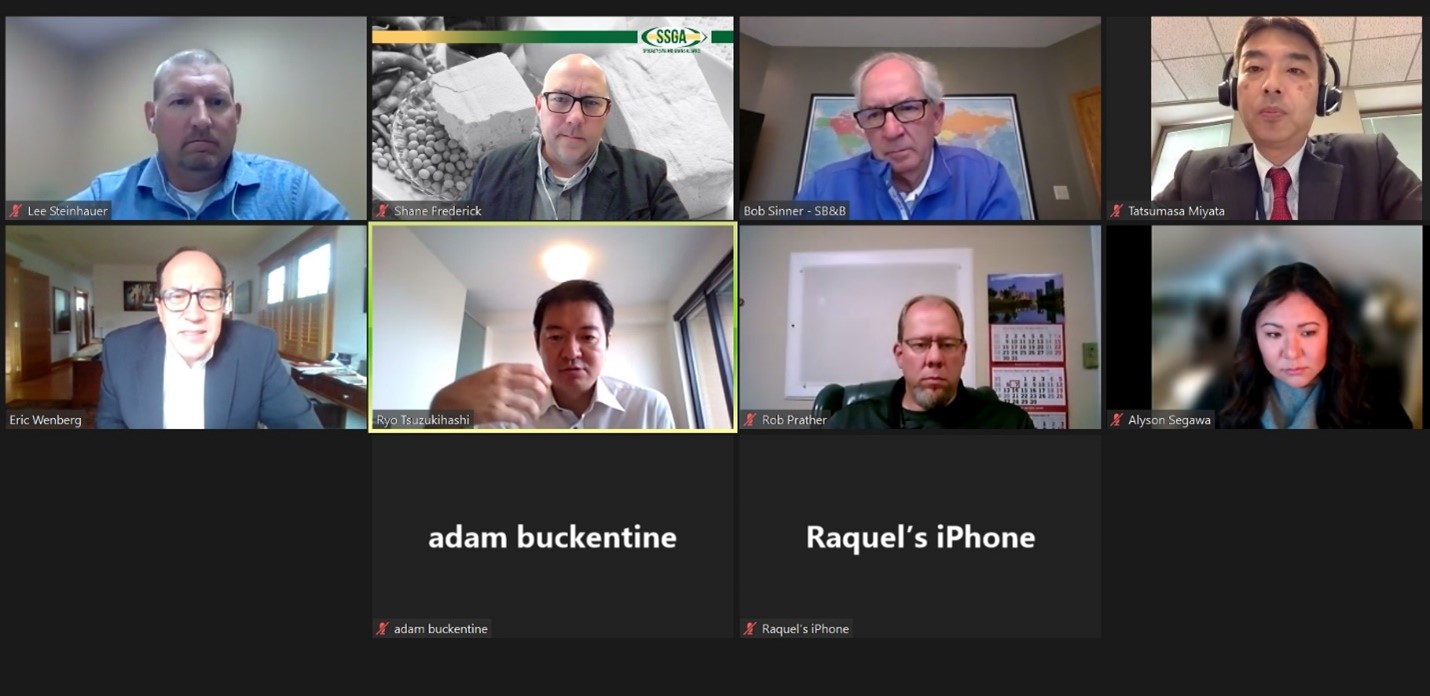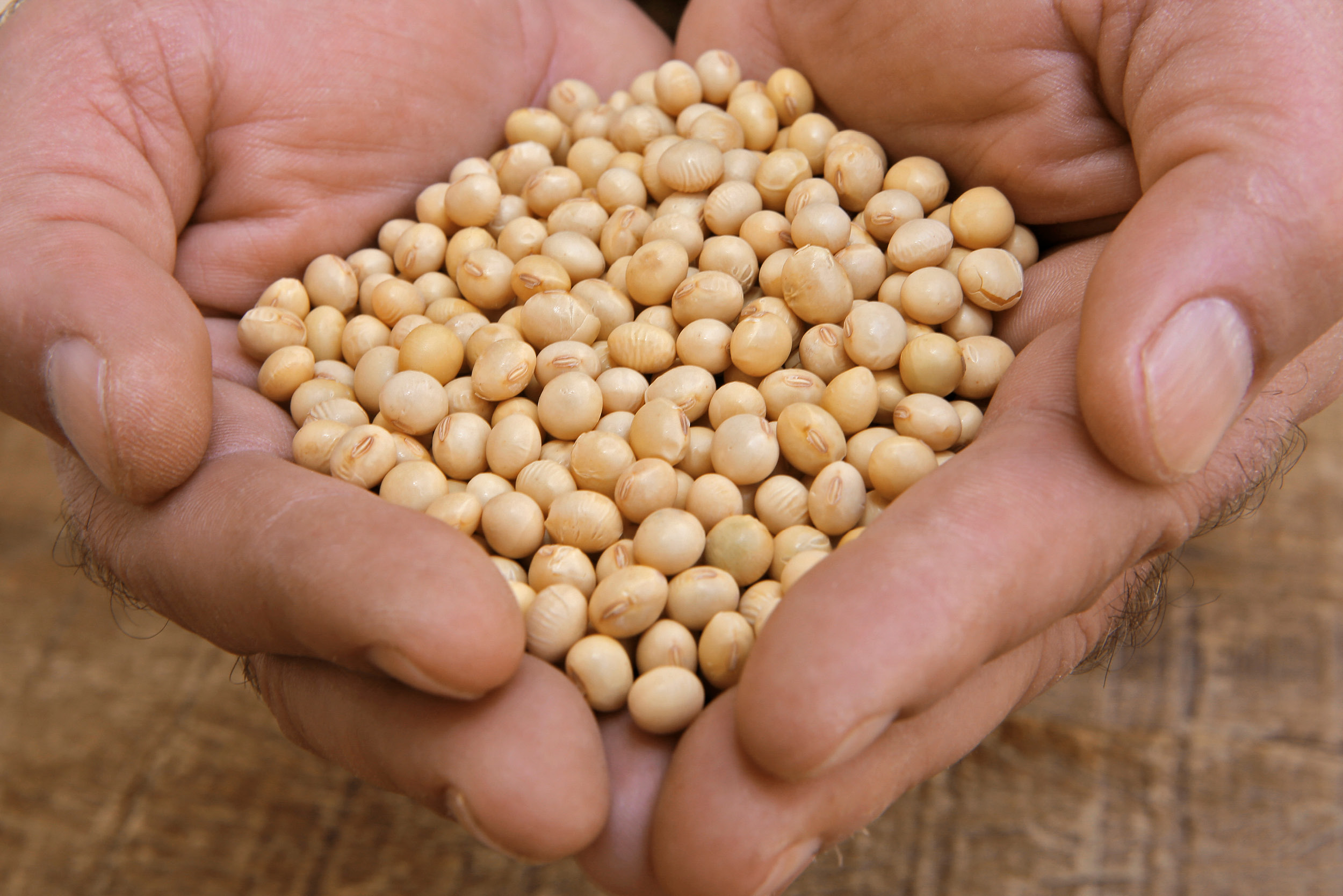SSGA meets with Japanese leaders to discuss container shipping crisis, 2021 harvest
With about 80% of Identity Preserved soybeans and specialty grains being exported out of the United States and 50% of those exports going to Japan for high-quality food products, it’s vital that U.S. processors continue to maintain good relationships and open communications with food manufacturers in Japan.
“It’s no secret: Japan has been and continues to be the star for U.S. suppliers,” said Bob Sinner, president of SB&B Foods and chairman of the Specialty Soya and Grains Alliance. “Our relationship with Japan speaks for itself, and relationships mean something. We need to continue to address the issues that are important to both of us. … Open dialog is always good.”
Sinner made his remarks during an online meeting last week between SSGA board members and staff and representatives from Japan’s embassy in Washington, D.C. – Tatsumasa Miyata, counselor for agriculture, forestry and fisheries; and Ryo Tsuzukihashi, first secretary agriculture attaché for the embassy.
 SSGA was represented by Sinner, Vice-Chairman Rob Prather, Secretary/Treasurer Darwin Rader and board members Adam Buckentine and Raquel Hansen, along with Executive Director Eric Wenberg, Technical Adviser for North Asia Alyson Segawa and SSGA staff Lee Steinhauer and Shane Frederick.
SSGA was represented by Sinner, Vice-Chairman Rob Prather, Secretary/Treasurer Darwin Rader and board members Adam Buckentine and Raquel Hansen, along with Executive Director Eric Wenberg, Technical Adviser for North Asia Alyson Segawa and SSGA staff Lee Steinhauer and Shane Frederick.
“We’re super thankful for Japan’s partnership in this business,” said Prather, chief strategic ambassador for Global Processing. “Without it, I don’t know where the business would be right now. It’s a very solid relationship.”
The meeting, conducted via Zoom, gave SSGA representatives a chance to provide a pre-harvest update on the 2021 crop as well as an outlook on what’s ahead for 2022. The heart of the discussion, however, centered on the container shipping difficulties that continue to disrupt the global supply chain. The crisis has resulted in higher freight charges and other costs, crippling congestion and interruption in and out of the ports and logistical difficulties in getting containers to exporters of agricultural products located throughout the United States.
The problem is one that has plagued U.S. Identity Preserved exporters for more than 18 months, putting stress on those processors and their staffs. It was made clear that transportation is one of the issues that companies on both sides of the Pacific Ocean agree must get resolved as quickly as possible.
“The transportation issue is most important for food security,” Miyata said, noting that most of Japan’s food is imported from the United States. “Container prices have skyrocketed, and it’s difficult for us to import U.S. grains and U.S. foods.”
Besides sharing information on the shipping challenges, SSGA’s board members, who represent a wide swath of the United States’ Identity Preserved growing region discussed this year’s crop, which is beginning to be harvested. Growing conditions have ranged from very dry to ideal to wet, depending on the location, so there’s expected will be a wide range of productivity.
“We are geographically diverse,” Wenberg said, “and our states are geographically diverse.”
Looking ahead to 2022, the message from the U.S. Identity Preserved industry to Japanese buyers (and others around the globe) is, as always: Plan ahead. Advance contract, especially with inflation expected to continue across all inputs.
“We already have our programs set,” said Rader, international sales manager for Zeeland Farm Services. “When the ’21 crop comes in, that’s when we start contracting for ’22.”
SSGA reiterated its gratitude to Japan for its decision in spring of 2020 to delay implementation of its phytosanitary requirement until 2023.
“We want to ensure that we work with Japanese importers and offer support where we can for compliance,” Segawa said. “SSGA wants to be a good partner.”
The embassy officials asked that SSGA continue to promote and educate buyers on the Identity Preserved system. SSGA will be unveiling an IP assurance protocol and related brandmark later this year.
SSGA will participate in a natto update with Japanese natto producers on Dec. 9. It will be an opportunity for continued open dialog between U.S. exporters and manufacturers of the traditional Japanese food made from fermented soybeans and popular for its health benefits.







Leave a Reply
Want to join the discussion?Feel free to contribute!